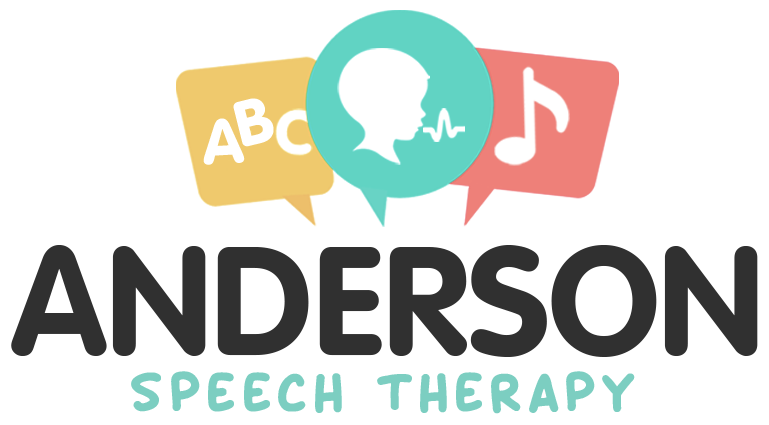
Questions are welcomed and encouraged!
Anderson Speech Therapy wants to provide you with as much information as we can within our scope of practice. Further, we recognize your dedication to playing a key role in your child’s development and success.
Does your child’s voice sound strained or breathy?
There are several components to the production of voice.
Your child’s voice is affected by its breath support and the amount of airflow through the glottis (the space between the vocal folds) is the “driving” power of the voice.
Voicing: Your child needs to gain control of turning their voice “on” and “off”. This refers to the vibration of the vocal folds. The goal is to control voicing without pushing or “squeezing” the vocal folds too tightly during phonation and speech.
Timing/Power: Your child needs to learn to control how hard or how soft the vocal folds open and close. When your child screams, this is a sudden hard attack and it can be abusive to the vocal folds over time.
Children and adults can suffer from voice disorders that affect the pitch, loudness, and overall quality of their vocal productions. Anderson Speech Therapy can help your child learn how to control their voice. A referral to an Ear Nose and Throat Specialist (ENT) will also be recommended before therapy begins to rule out any physical causes of a voice disorder.

